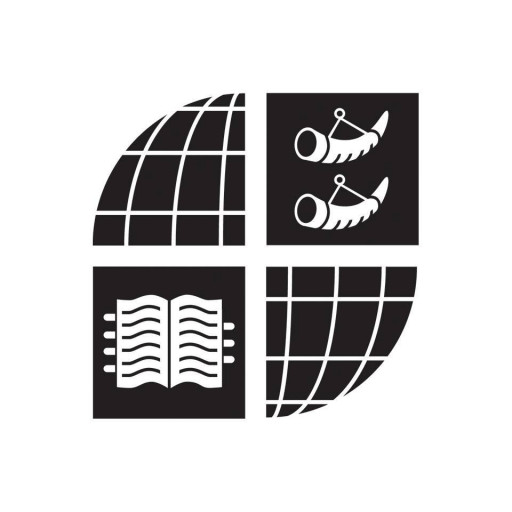Photos of university / #sunderlanduni
Description
You can use this course to work towards one of three possible degree titles:
- BSc (Hons) Biomedical Science
- BSc (Hons) Applied Biomedical Science
- BSc (Hons) Healthcare Science
We encourage our students to undertake a year-long placement in industrial or research laboratories between the second and final years, although it is not compulsory.
Detailed Course Facts
Application deadline 15th January/October Tuition fee- GBP 8500 Year (EEA)
- GBP 9500 Year (International)
- English
Course Content
BSc (Hons) Biomedical ScienceYear 1 (national level 4)
- Analysis and Measurement (20 Credits)
- Human Physiology (20 Credits)
- Biological Chemistry (20 Credits)
- Cell Science 1(20 Credits)
- Infection & Immunity (20 Credits)
- Clinical & Professional Skills (20 Credits)
Year 2 (national level 5)
- Pathophysiology and Therapeutics (20 Credits)
- Cell Science 2 (20 Credits)
- Infection and Immunity 2 (20 Credits)
- Blood Sciences (20 Credits)
- Biosciences Dissertation (20 Credits)
- Analytical Science (10 Credits)
- Research Methods (10 Credits)
Optional sandwich year
- 48 week industrial placement
Final Year (national level 6)
Core
- Biomedical Project (20 Credits)
Optional (select four)
- Pathophysiology (20 Credits)
- Cellular Pathology (20 Credits)
- Clinical Biochemistry (20 Credits)
- Molecular Pathology (20 Credits)
- Haematology and Blood Transfusion (20 Credits)
- Human Genetics and Genomics (20 Credits)
- Immunology (20 Credits)
- Medical Microbiology (20 Credits)
BSc (Hons) Healthcare Science
Year 1 (national level 4)
Same core modules as BSc (Hons) Biomedical Sciences.
You will also undertake suitable unpaid work placements amounting to 10 weeks.
Year 2 (national level 5)
Same core modules as BSc (Hons) Biomedical Sciences, plus:
- Work-based learning in Life Sciences - 15 week placement
Final Year (national level 6)
Core:
- Research Project in Healthcare Science (30 Credits)
- Work-based learning in Life Sciences - 25 week placement (30 Credits)
You will also undertake specific modules and placements that will determine the exact title of your degree:
- BSc (Hons) Healthcare Science (Blood Science)
- BSc (Hons) Healthcare Science (Cellular Science)
- BSc (Hons) Healthcare Science (Infection Science)
- BSc (Hons) Healthcare Science (Genetic Science)
Your degree title will depend on which of the following four options you choose:
- Clinical Biochemistry (20 Credits)
- Immunology (20 Credits)
- Haematology and Blood Transfusion (20 Credits)
- Core:
- Cellular Pathology (20 Credits)
- Molecular Pathology (20 Credits)
- Optional (choose one):
- Clinical Biochemistry (20 Credits)
- Immunology (20 Credits)
- Haematology and Blood Transfusion (20 Credits)
- Human Genetics & Genomics (20 Credits)
- Medical Microbiology (20 Credits)
- Core:
- Molecular Pathology (20 Credits)
- Human Genetics and Genomics (20 Credits)
- Optional:
- Cellular Pathology (20 Credits)
- Clinical Biochemistry (20 Credits)
- Haematology and Blood Transfusion (20 Credits)
- Immunology (20 Credits)
- Medical Microbiology (20 Credits)
- Molecular pathology (20 Credits)
- Immunology (20 Credits)
- Medical Microbiology (20 Credits)
English Language Requirements
IELTS band : 6
To study at this university, you have to speak English. We advice you to
take an IELTS test. More About IELTSRequirements
Our typical offer will be in the region of 260 points from a minimum of two A Levels or equivalent (for example 1 x AVCE double award) including biology or chemistry. Please note we do not accept General Studies AS or A Level.
We accept a maximum of 20 points from Level 3 Key Skills qualifications.
We also require three passes at GCSE grade C or above, which must include Mathematics and English Language, or a minimum of Level 2 Key Skills in Communication, Application of Number and Information Technology.
In order to undertake the work-based training you will need a satisfactory disclosure from the Disclosure and Barring Service (DBS) and a medical check and be subject to interview by the hospital work placement provider. This selection process will be undertaken during the first year of the course.
If you have already covered one or more of the topics covered by the course, and would like to apply for accreditation of prior learning (APL), please contact the course leader.
Other acceptable qualifications
BTEC National: 260 points from a relevant BTEC Certificate or Diploma, including Biology or Chemistry
Access Courses: We would require successful completion of an Access to Higher Education course that is accredited by the Quality Assurance Agency to include Biology and Chemistry. We would also require a minimum of grade C in GCSE in Mathematics and English Language or the equivalent as part of your course.
Scottish Highers: Our typical offer is for 260 points including biology or chemistry.
Irish Leaving Certificate: Our typical offer is for 260 points including biology or chemistry.
If you wish to take the Healthcare Science route you will need a score of 7.0 IELTS.
Work Experience
No work experience is required.
Want to improve your English level for admission?
Prepare for the program requirements with English Online by the British Council.
- ✔️ Flexible study schedule
- ✔️ Experienced teachers
- ✔️ Certificate upon completion
📘 Recommended for students with an IELTS level of 6.0 or below.
Related Scholarships*
- Academic Excellence Scholarship
"The Academic Excellence Scholarship can provide up to a 50 % reduction in tuition per semester. These scholarships will be renewed if the student maintains superior academic performance during each semester of their 3-year Bachelor programme. The scholarship will be directly applied to the student’s tuition fees."
- Access Bursary
Bursary for UK students all subjects where the variable tuition fee rate is payable.
- Alumni Bursary
Alumni Bursary for UK Undergraduate students
* The scholarships shown on this page are suggestions first and foremost. They could be offered by other organisations than University of Sunderland.
Funding
Scholarships on offer include cash bursaries, reduced tuition fees, free accommodation and free public transport.








